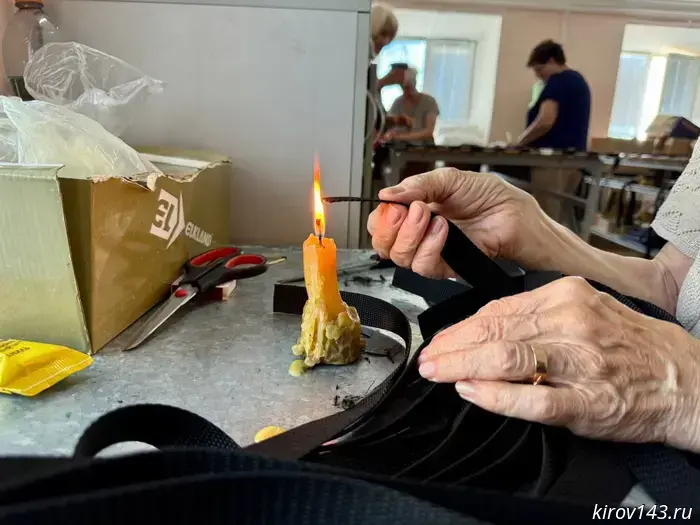
"We're like one family here": Humanitarian Aid Day in Kirov Oblast
In Kirov Oblast, Humanitarian Aid Day is about those who come every day: weaving nets, cutting and singeing straps, stitching volokushas, packing boxes and sending convoys. They work quickly and precisely: some cut, others weave, others assemble and stitch, and still others load and see the vehicles off.
"At first I came here by accident: they said we needed to bring things. I ran over and saw: help is really needed. Hands are needed. Just hands. To make, pack, weave," says volunteer Larisa Fedorova. "We take socks out of different little boxes and fold them into a box. Socks — 70 pairs. When a convoy is being loaded — they take them."
"A camouflage net is a very important element at the front, because every net saves a life, and not just one. Sometimes, when we weave, we add a prayer — so that the protective forces increase," volunteer Raisa shares.
They also make volokushas here — light stretchers for evacuating the wounded: "The guys say they're comfortable, light, always with them. They've said more than once that these very stretchers saved their lives."
According to the Kirov regional branch of the Russian Union of Youth, 1,021 volunteers are helping in the #WEARETOGETHER campaign today, most of them young people from public and volunteer associations.
Numbers that represent people
The Za Vyatku Foundation was established in August 2022. During its operation more than 257 million rubles have been raised and directed to help fighters. Just in 2024 and the first quarter of 2025, 15 large humanitarian convoys totaling 300 tons were sent, and since its founding — 69 convoys (1,124 tons). At the same time, 3–5 smaller vehicles (1 to 3 tons each) leave the foundation's warehouse daily, which allows aid to be delivered more quickly and precisely to specific addresses.
In 2024 the Urzhum office of the foundation independently sent 11 humanitarian convoys weighing about 60 tons. There are more and more examples like this: in Murashinsky, Omutninsky, Orichevsky, Urzhumsky and other districts the local offices collect loads themselves, involve entrepreneurs and find transport.
Areas of activity
The foundation is not limited to sending boxes.
- Camouflage nets. As of early 2025 there are 324 sites for weaving them — in technical colleges, universities, schools and organizations.
- Dry kits. Since June 2023 about 70,000 sets have been produced and sent.
- Dugout candles. In 2024 — more than 50,000 pieces.
- Portable charging stations. Developed and patented jointly with Lepse JSC, 450 units have been sent.
- Sewing production. Since 2024 — 2,158 stretchers and volokushas, pouches, "Leshiy" suits, friend-or-foe armbands.
- 3D models. Tail pieces and nose/tip attachments for drones (more than 2,000 sets), ampoule holders and other medical cases are being produced.
As of August 11 the Za Vyatku foundation sent to the special military operation zone:
- 74 convoys weighing a total of 1,339 tons,
- 196,201 camouflage nets with a total area of 557,358 sq. m,
- 2,422 stretchers,
- 538 charging devices,
- 208 vehicles.
Who helps
Today the foundation has more than 15,000 volunteers across the region. These are pensioners who give part of their pension. Women who sit at the nets until late at night. Schoolchildren who come with their mothers and put products they bought themselves into the boxes.
"We are like one family here. Someone brings the garden harvest, someone treats us with pies. But the main thing is — no one remains indifferent," says Raisa.
These numbers are about the kettle that boils dozens of times a day; about hands with calluses; about those who go to the warehouse "from morning until late evening."
How the military see it
A senior UAV officer speaks plainly:
"We're grateful for any humanitarian aid. But unfortunately, there's very little of it — very little of what is specifically needed. UAVs need 'Mavics', relay stations, 'Bulats', radios. The equipment that arrives from Kirov helps, but mostly in the rear — to get to the store, to the headquarters, to take people on leave. It generally doesn't go to the line of contact. There is a shortage of narrowly targeted equipment: masts for relays, small generators. Powerful laptops are needed. No matter how you look at it, it's basically all at our own expense. Few send expensive equipment — usually through personal contacts and requests."
He also asks to pass on thanks. Separately — for humanitarian aid worth 2 million rubles: to Nikita Vladimirovich Molodkin and Evgeny Anatolyevich Kholmanskikh — "they bought a Niva for 800,000, Mavics, laptops."
For vehicle spare parts worth 1.5 million rubles — to individual entrepreneur Stanislav Andrianov; Lebyazhsky Vegetable Oil Plant LLC; VTEK LLC (director Yuri Trusov); Igor Negonov.
And — to Vyacheslav Boyarintsev and Sergey Fominykh (Union of Russian Paratroopers), Andrey Gennadyevich Seleznev (Ministry of Property).
"I'm grateful to everyone. The humanitarian aid doesn't arrive for me personally, it's for everyone. I'm more glad to see friends I've known for a long time," the soldier laughs.
A representative of a mobilized regiment adds:
"Humanitarian aid helps, no question. Letters help too — the guys read them. But sitting in a trench you read them and then you don't know what to do with them: with our frequent moves letters get lost, it's hard to carry them with you. At the start humanitarian aid helped a lot. Now supply is a bit easier — humanitarian aid is gradually moving to the background, the guys have established connections, know where to get things. I'm speaking for myself: it may be different elsewhere."
This day is about people
About the pensioner who brings a thousand rubles from her pension. About the woman who sits at a net for hours. About the schoolchild who puts a chocolate bar and a letter into a box. About those who don't wait but do. Humanitarian Aid Day is their holiday. For those who hold the rear. For those who every day do their quiet but very big work.
Другие Новости Кирова (НЗК)
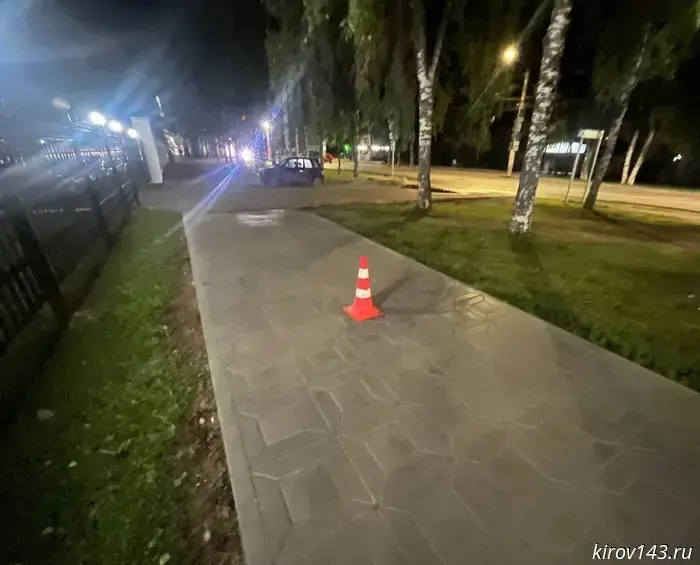 In Kirov, a scooter rider hit a three-year-old girl and fled the scene.
A criminal case has been opened in connection with the injury of a minor girl after she was struck by a scooter rider.
In Kirov, a scooter rider hit a three-year-old girl and fled the scene.
A criminal case has been opened in connection with the injury of a minor girl after she was struck by a scooter rider.
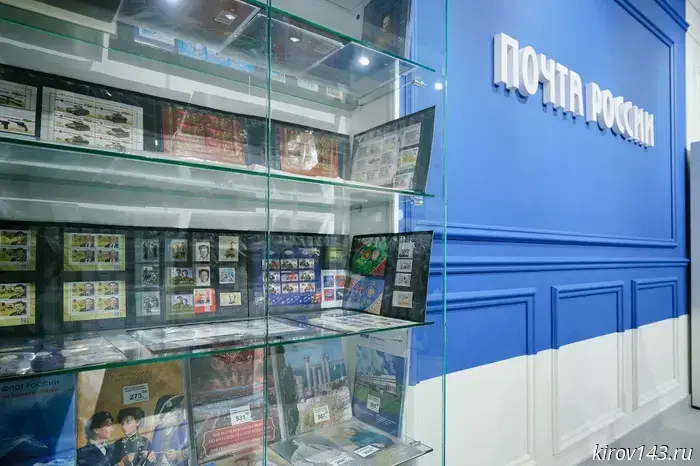 Last year, residents of Kirov Oblast bought more than 9.6 million postage stamps.
Despite digital technologies, interest in stamps and collecting has not waned.
Last year, residents of Kirov Oblast bought more than 9.6 million postage stamps.
Despite digital technologies, interest in stamps and collecting has not waned.
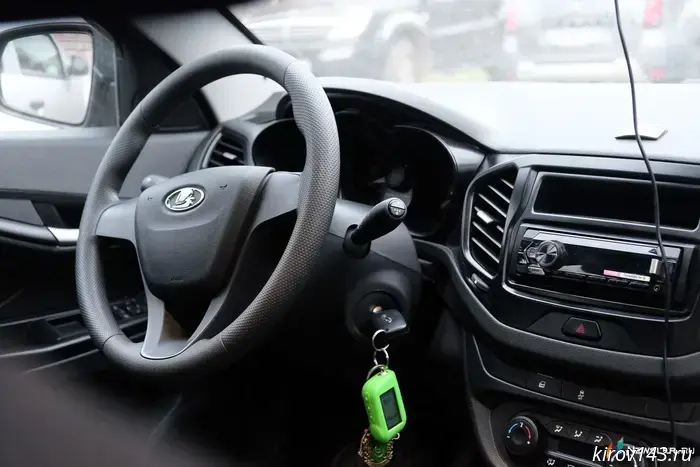 Demand for used cars has increased in Russia.
In July 2025, sales of used passenger cars showed a significant increase: according to Avtostat, sales rose by 21.4% compared with June and amounted to 567.2 thousand cars.
Demand for used cars has increased in Russia.
In July 2025, sales of used passenger cars showed a significant increase: according to Avtostat, sales rose by 21.4% compared with June and amounted to 567.2 thousand cars.
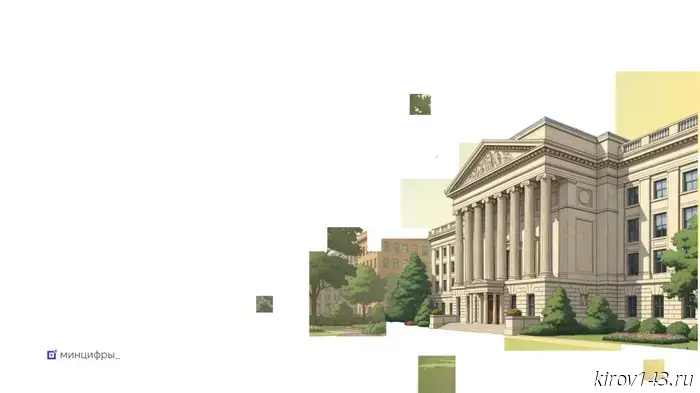 Kirov will not become the cultural capital.
The public vote for the title "Cultural Capital 2027" revealed the frontrunners, but Kirov did not make it to the finals of the competition. Chelyabinsk, Vologda and Novosibirsk received the most votes.
Kirov will not become the cultural capital.
The public vote for the title "Cultural Capital 2027" revealed the frontrunners, but Kirov did not make it to the finals of the competition. Chelyabinsk, Vologda and Novosibirsk received the most votes.
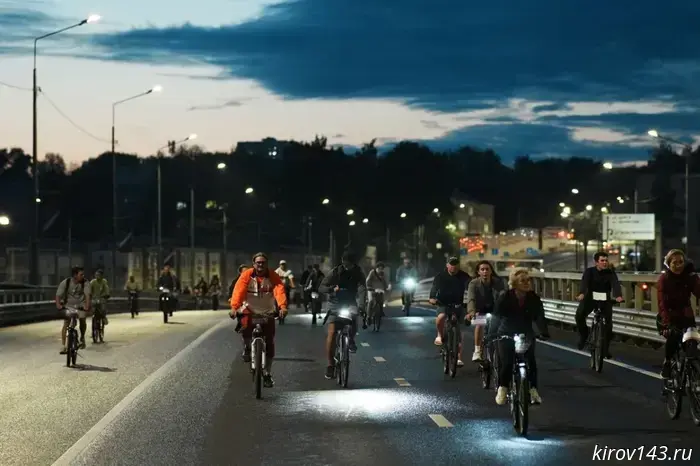 More than 500 residents of Kirov pedaled on Saturday evening.
Last Saturday, August 16, a large evening bicycle parade took place in Kirov, in which more than 500 city residents participated.
More than 500 residents of Kirov pedaled on Saturday evening.
Last Saturday, August 16, a large evening bicycle parade took place in Kirov, in which more than 500 city residents participated.
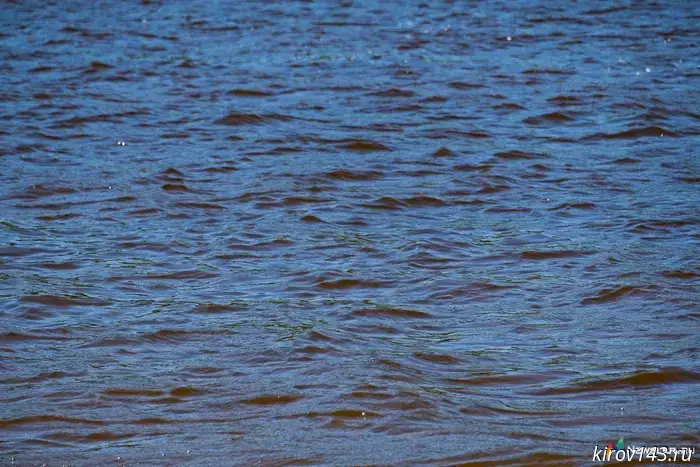 Over the past week in Kirov Oblast, nearly three dozen fires occurred and three men drowned.
The Main Directorate of the Russian Ministry of Emergency Situations for the Kirov Region reported on recent incidents.
Over the past week in Kirov Oblast, nearly three dozen fires occurred and three men drowned.
The Main Directorate of the Russian Ministry of Emergency Situations for the Kirov Region reported on recent incidents.
"We're like one family here": Humanitarian Aid Day in Kirov Oblast
Today, August 19, World Humanitarian Day is observed. We found out who in the Kirov Region and how they are supporting those who are particularly in need of help today—our servicemen in the special operation zone, who desperately need not only material support in the form of supplies and special equipment, but also the assurance that they are remembered, loved, and awaited home triumphant. And that they have a home front behind them ready to provide their fighters with everything necessary.
